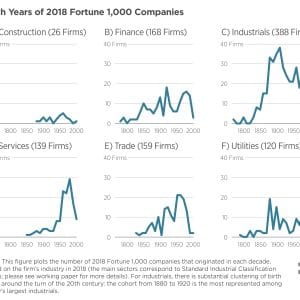- About
- Network
- Research Initiatives
- Big Data Initiative
- Chicago Experiments Initiative
- Health Economics Initiative
- Industrial Organization Initiative
- International Economics and Economic Geography Initiative
- Macroeconomic Research Initiative
- Political Economics Initiative
- Price Theory Initiative
- Public Economics Initiative
- Ronzetti Initiative for the Study of Labor Markets
- Socioeconomic Inequalities Initiative
- Research Initiatives
- Scholars
- Research
- Monotone Ecological InferenceHadi Elzayn, Jacob Goldin, Cameron Guage, Daniel E. Ho, and Claire MortonA Study of the Microdynamics of Early Childhood LearningJames Heckman and Jin ZhouClosing Early Math Gaps by Parental Education with Technology at HomeDaniela Bresciani, Ariel Kalil, Haoxuan Liu, Susan E. Mayer, and Rohen Shah
- Insights
Videos
BFI Youtube Channel
- Events
Upcoming Events
- News












